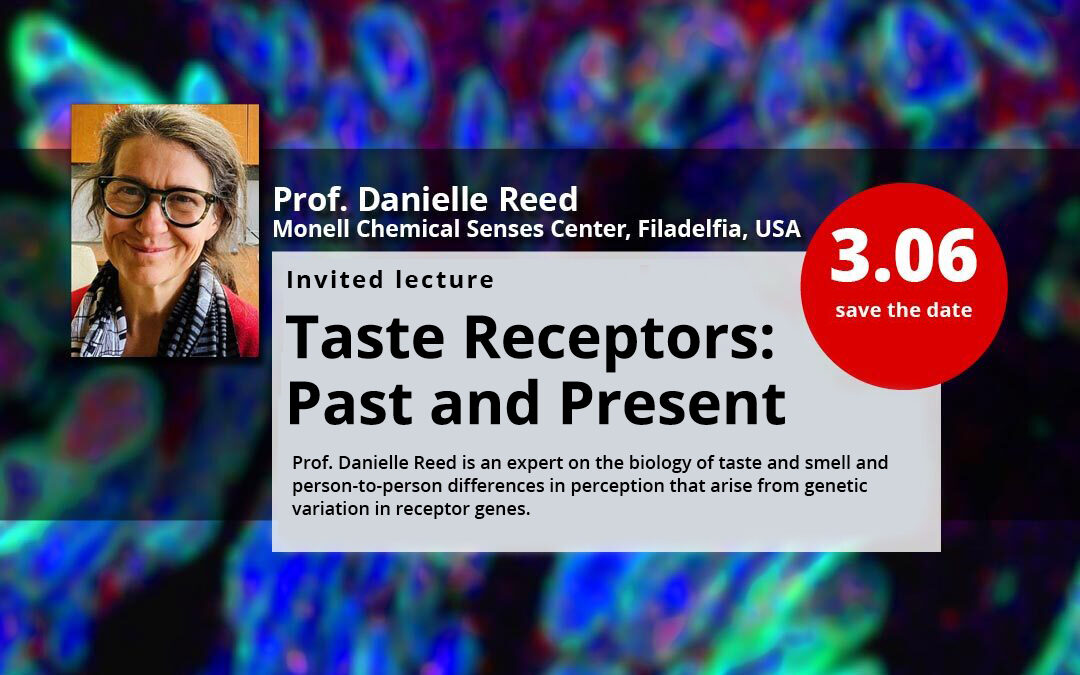Invited lecture
Taste Receptors: Past and Present
Prof. Danielle Reed
Monell Chemical Senses Center in Philadelphia, USA
On the 3rd of June 2022, the Institute of Agricultural and Food Biotechnology was a host to an invited lecture entitled Taste Receptors: Past and Present delivered by Prof. Danielle Reed from the Monell Chemical Senses Center in Philadelphia, USA.
Taste receptor genes coding for proteins that respond to bitter and sweet molecules were discovered twenty years ago and we have learned about many aspects of their function, including their ligand specificity, expression and distribution, and the roles they play outside of the tongue and the conscious experience of taste. In her lecture, Prof. Reed reviewed the discovery of these receptors, the breadth of person-to-person and species-to-species differences as well as shared with the audience the new information about the genetic influences of these receptors on human food choice.
Prof. Danielle Reed is an expert on the biology of taste and smell and person-to-person differences in perception that arise from genetic variation in receptor genes. Prof. Reed is the Associate Director of the Monell Chemical Senses Center in Philadelphia in the USA, which is a world leader in chemosensory research, which is research on the perception of chemicals and the processing of this information. Danielle Reed is also on the leadership team of the Global Consortium of Chemosensory Research (GCCR), which brings together people who conduct studies all over the world to assess relationships between respiratory illnesses (e.g. COVID-19) and their effects on smell and taste, and she is the President of the Association of Chemoreception Sciences (AChemS), an international organisation of scientists who study taste and smell. Prof. Reed often gives webinars and talks for professionals and appears in public media such as the press (e.g. The New York Times Magazine), TV, and radio programs to share her knowledge and experience on chemosensation in humans with the general public.


